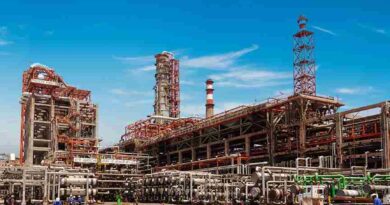Maharashtra signs agreements worth Rs 2.76 lakh crore For Green Hydrogen

The Maharashtra Government has inked multiple MoUs for seven projects aimed at green hydrogen production, involving an investment totaling Rs 2,76,300 crore. These agreements were formalized in the presence of Chief Minister Eknath Shinde, Deputy CM Devendra Fadnavis, who oversees the energy ministry, Principal Secretary of the energy department Abha Shukla, and other officials.
Among the participating companies are NTPC Green Energy, Avada Green Hydrogen, Renew E-Fuels, Inox Air Products, L&T Green Tech, JSW Green Hydrogen, and Welspun Godavari GH2.
These projects in Maharashtra collectively are expected have a green hydrogen production capacity of 910 kilotonnes per annum (KTPA), resulting in an annual reduction of 511 crore kg in carbon emissions. Additionally, they aim to produce 4,732 KTPA of green ammonia.
These initiatives align with the Maharashtra government’s push to implement the National Hydrogen Mission, expected to generate approximately 64,000 jobs in the state. Chief Minister Eknath Shinde highlighted Prime Minister Narendra Modi’s emphasis on promoting green hydrogen, noting the state government’s release of the Green Hydrogen Policy 2023 in accordance with the Center’s guidelines for the National Hydrogen Mission. The government targets a production of 500 KTPA by 2030 and offers various incentives to developers of green hydrogen.
Shinde emphasized the status of Maharashtra as an industry-friendly state, attributing the influx of investments to its robust infrastructure and skilled workforce. The overarching goal is to position Maharashtra as a frontrunner in the green hydrogen ecosystem.
Deputy Chief Minister Devendra Fadnavis underscored the pioneering role of Maharashtra as the first state with a comprehensive policy on green hydrogen, aligning with the state’s hydrogen policy announced in July the previous year, which involved an expenditure of Rs 8,562 crore.
The Maharashtra Government anticipates generating revenue of Rs 18,000 crore over the next 25 years through policy implementation, aiming to attract investments ranging from Rs 80,000 crore to Rs 1 lakh crore and create 55,000 to 65,000 jobs.




